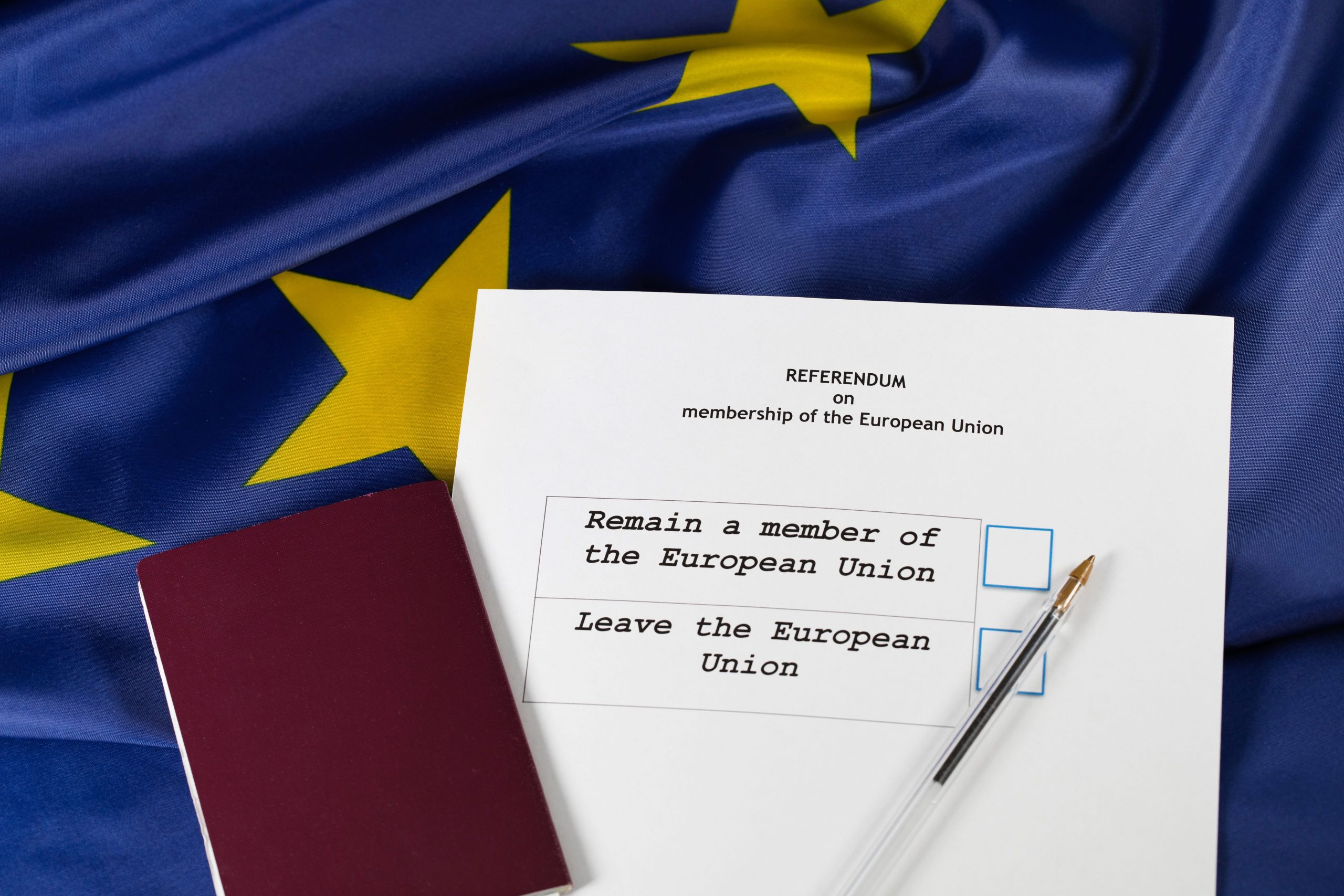Navigating the labyrinth of taxation in Europe presents a formidable challenge for international businesses, each country brandishing its own unique set of rules, rates, and regulations. This diversity stems from the continent’s rich tapestry of cultures, economies, and governmental structures, leading to a tax landscape that is as varied as Europe itself.
From the Value-Added Tax (VAT) that is ubiquitously applied yet varies in rate from country to country, to corporate tax rates that can range widely, the European tax environment demands careful consideration and strategic planning.
Understanding these tax systems is not just a matter of legal compliance—it’s a strategic imperative for businesses seeking to optimize their operations across Europe.
The implications of tax laws extend beyond mere financial obligations; they influence decisions on where to establish European headquarters, how to structure cross-border transactions, and the best ways to leverage tax incentives and reliefs.
5 Key Tax Considerations for International Businesses

Navigating taxation in Europe requires international businesses to pay careful attention to several key areas that significantly impact their operational and financial strategies. Here’s a closer look at these critical tax considerations:
1. VAT (Value-Added Tax)
VAT is a crucial element of taxation for businesses operating within Europe. It’s a consumption tax applied to almost all goods and services.
The standard VAT rates in European countries vary widely, typically ranging between 17% and 27%. This variation affects pricing, accounting, and the administrative burden on businesses.
Importantly, businesses are required to register for VAT in each country where they have taxable activities. This registration is essential not only for compliance but also to allow businesses to reclaim any VAT they’ve paid on business-related goods and services.
2. Corporate Tax Rates
Corporate tax rates across Europe show significant variation, influencing where companies may choose to establish their headquarters or subsidiaries. Rates can vary from as low as 9% in some countries to over 30% in others.
Countries like Hungary and Ireland have traditionally offered lower corporate tax rates to attract foreign investment, while France and Germany are examples of countries with higher rates.
The choice of location within Europe can therefore have substantial implications for a company’s tax liability and overall financial planning.
3. Withholding Taxes
Withholding taxes on dividends, interest, and royalties represent another important consideration for international businesses. These taxes are levied at the source, meaning the country where the payment originates may withhold taxes before remittance to the recipient.
Rates can vary, and double taxation treaties between countries aim to prevent the same income from being taxed twice. These treaties can significantly reduce withholding tax rates or exempt certain incomes from withholding taxes altogether, making them a critical aspect of cross-border investment and financial flows within Europe.
4. Transfer Pricing
Transfer pricing rules are designed to ensure that transactions between affiliated companies across different countries are conducted at arm’s length, preventing companies from shifting profits to low-tax jurisdictions.
Compliance with these rules is strictly enforced within Europe, with detailed documentation requirements and potential penalties for non-compliance. Understanding and adhering to these rules is essential for international businesses to avoid costly adjustments and penalties.
5. Digital Taxes
The digital economy has prompted some European countries to introduce taxes specifically targeting digital services. These digital services taxes are applied to revenue generated from activities such as online advertising, the sale of user data, and digital platforms that connect buyers and sellers.
Countries like France, Italy, and Spain have led the way in implementing these taxes, which primarily affect large tech companies. The emergence of digital taxes adds another layer of complexity to the tax landscape in Europe, particularly for tech companies that may not have a physical presence in the country but generate significant digital revenue from European users.
For international businesses, staying ahead in Europe’s dynamic tax environment requires a comprehensive understanding of these key considerations. It also underscores the importance of strategic tax planning and consultation with tax professionals to navigate the complexities of European taxation effectively.
Tax Incentives and Reliefs

Tax incentives and reliefs play a crucial role in shaping the business strategies of international companies operating in Europe. These incentives are designed to encourage investment in key areas such as research and development (R&D), sustainable and green technologies, and specific sectors deemed vital for economic growth.
Understanding and leveraging these incentives can significantly reduce a company’s overall tax burden and enhance its competitiveness.
R&D Tax Incentives
Many European countries offer tax incentives for businesses investing in research and development, recognizing the importance of innovation for economic growth. These incentives often take the form of tax credits or deductions that reduce the taxable income of a company based on its R&D expenditures.
For instance, the United Kingdom’s R&D tax credit scheme allows companies to reduce their tax bill or receive a cash payment if they’re loss-making, in relation to their R&D spending. France’s Crédit d’Impôt Recherche (CIR) is another notable example, offering a significant tax credit for R&D expenses.
These incentives aim to stimulate innovation across industries, making Europe an attractive location for high-tech and research-driven companies.
Green Investments
With the European Union’s strong focus on environmental sustainability, there are numerous tax incentives available for investments in green technologies and sustainable practices.
These may include tax credits for the production or use of renewable energy, deductions for investments in energy-efficient equipment, or special grants for projects that contribute to environmental protection.
Germany, for instance, offers various incentives for renewable energy investments, including reduced tax rates and grants. These incentives not only help reduce a company’s tax liability but also support its reputation as a sustainable and environmentally responsible business.
Sector-Specific Incentives
In addition to R&D and green investments, many European countries offer tax incentives for specific sectors such as technology, manufacturing, and creative industries. These can include reduced corporate tax rates, investment grants, and special deductions for specific types of expenditures.
For example, Ireland has been successful in attracting global tech companies with its favorable tax regime, including low corporate tax rates and tax relief for intellectual property investments.
How International Businesses Can Benefit
International businesses can significantly benefit from these tax incentives by strategically aligning their investment and operational decisions with the incentives available in different European countries.
By doing so, they can not only reduce their tax liabilities but also enhance their competitiveness and support their long-term growth objectives. However, navigating these incentives requires a thorough understanding of the specific tax laws and regulations in each country, as well as strategic planning to ensure compliance and maximize benefits.
Moreover, leveraging tax incentives and reliefs effectively can support a company’s broader strategic goals, such as driving innovation, promoting sustainability, and expanding into new sectors. It underscores the importance of incorporating tax planning into the overall business strategy for international companies operating in Europe.
Consulting with tax professionals during company registration and staying informed about the latest tax developments is essential for taking full advantage of these opportunities to reduce the overall tax burden and support business growth.
Navigating Tax Compliance and Reporting Requirements

Navigating tax compliance and reporting requirements is a critical aspect of doing business in Europe. With each country having its own set of rules, deadlines, and documentation requirements, understanding and adhering to these regulations is essential to avoid penalties, fines, and potential legal issues.
The complexity of tax compliance is compounded for international businesses operating across multiple European jurisdictions, each with its unique tax environment.
Importance of Compliance
- Local Tax Filing Deadlines: Tax filing deadlines vary significantly across Europe, and missing these deadlines can result in late filing penalties, interest charges on owed taxes, and increased scrutiny from tax authorities. Businesses must keep a comprehensive calendar of all relevant tax filing dates in each country of operation to ensure timely compliance.
- Documentation Requirements: Proper documentation is the backbone of tax compliance. This includes maintaining accurate records of income, expenses, VAT payments and recoveries, and proof of tax withheld on employee salaries. In some cases, specific documentation is required to qualify for tax incentives or to file for refunds. Failure to provide the required documentation can lead to disallowed deductions or credits, additional taxes owed, and penalties.
- Penalties for Non-Compliance: The consequences of non-compliance can be severe, ranging from financial penalties to legal action. Tax authorities across Europe are increasingly employing sophisticated technology to detect irregularities and non-compliance, making it more important than ever for businesses to ensure their tax affairs are in order.
Strategies for Effective Compliance
- Consulting with Local Tax Professionals: Given the complexity and nuances of local tax laws, consulting with local tax professionals is invaluable. These experts can provide insights into the specific requirements of each jurisdiction, help navigate the intricacies of tax filings, and advise on optimizing tax positions. They can also represent the business in dealings with local tax authorities, providing an additional layer of assurance.
- Using Specialized Tax Software: To manage compliance efficiently, especially across multiple countries, leveraging specialized tax software can be a game-changer. These tools can automate many aspects of tax compliance, from calculating tax liabilities to generating reports and filing returns. Advanced software solutions also offer features like tax calendar alerts, document storage, and compliance checks, helping businesses minimize errors and streamline their tax processes.
- Regular Training and Updates: Tax laws and regulations are subject to change, and keeping up-to-date is crucial for compliance. Regular training for finance and tax teams, along with updates from tax professionals or software providers, can help businesses stay informed about the latest developments in tax compliance and reporting requirements.
Navigating tax compliance in Europe requires a proactive approach, detailed knowledge of local regulations, and strategic use of resources like tax professionals and technology. By prioritizing compliance, businesses can avoid the pitfalls of non-compliance and focus on their core operations, growth, and success in the European market.
Brexit: It’s Impact on Taxation in the EU Region

Brexit has significantly altered the tax landscape for businesses operating between the UK and EU countries, introducing complexities in VAT, customs duties, and the overall regulatory framework governing trade and taxation.
These changes have implications for businesses on both sides of the Channel, affecting how goods and services are traded, taxed, and reported.
VAT Changes
Before Brexit, goods moved between the UK and EU member states were treated as intra-community supplies, with VAT being accounted for via reverse charge mechanisms and simplified reporting.
Post-Brexit, these transactions are now considered imports and exports, subject to standard international VAT and customs procedures. This shift means businesses must navigate a new set of VAT registration and reporting requirements, potentially leading to increased administrative burdens and cash flow implications.
For example, UK businesses exporting to the EU may now need to register for VAT in individual EU member states where they have customers, unless specific arrangements such as the One-Stop Shop (OSS) scheme are utilized.
Customs Duties and Import Taxes
Brexit has also led to the imposition of customs duties on goods moving between the UK and EU, where applicable under the terms of the UK-EU Trade and Cooperation Agreement.
While the agreement allows for tariff-free trade on goods that meet specific origin rules, businesses must now provide detailed documentation to prove the origin of their goods to qualify for this benefit.
This requirement adds a layer of complexity to trade, requiring thorough knowledge of customs procedures and meticulous record-keeping.
Regulatory and Compliance Implications
Beyond VAT and customs duties, Brexit has introduced broader regulatory and compliance challenges. Businesses must adapt to two separate regulatory regimes for taxation and trade, increasing the complexity of operations and compliance.
This dual regime affects not just the taxation of goods and services but also impacts supply chain decisions, contractual arrangements, and strategic planning.
Navigating the New Landscape
To navigate this new tax landscape, businesses operating between the UK and EU need to:
- Reassess their supply chains and distribution models to minimize tax liabilities and customs duties.
- Stay informed about the latest tax and customs regulations in both the UK and EU member states, leveraging expert advice and guidance.
- Consider the use of technology and automation to manage the increased administrative workload, ensuring compliance with new reporting and documentation requirements.
Brexit’s impact on taxation is a vivid illustration of how geopolitical changes can reshape the business environment. Businesses must remain agile and informed to navigate these changes successfully, maintaining compliance and optimizing their operations in the post-Brexit landscape.
Key Takeaways
In navigating the intricate tapestry of European taxation, international businesses face a dynamic and multifaceted challenge. The diversity of VAT rates, the spectrum of corporate tax rates, the intricacies of withholding taxes, the rigor of transfer pricing regulations, and the evolving landscape of digital taxes all underscore the complexity of operating across this continent.
Moreover, the advent of Brexit has introduced a new layer of complexity, transforming the way UK and EU businesses engage in trade and taxation, particularly concerning VAT and customs duties.
Understanding these varied tax considerations is not merely about ensuring compliance; it’s a strategic imperative for optimizing operations, reducing tax liabilities, and seizing competitive advantages in a rapidly changing economic landscape.
The imperative to adapt to each country’s specific tax regimes, coupled with the overarching EU policies and the fallout from Brexit, demands vigilance, agility, and expertise.
To thrive in this environment, businesses must prioritize a strategic approach to tax planning, leveraging local expertise and technological solutions to navigate the complexities of taxation in Europe.
Consulting with local tax professionals offers invaluable insights into the nuances of each jurisdiction, ensuring compliance and strategic tax optimization. Similarly, adopting specialized tax software can streamline processes, reduce errors, and facilitate compliance across multiple jurisdictions.





